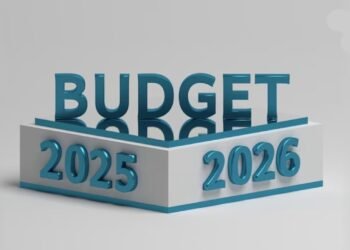The Institute of Economic Affairs (IEA) has urged government to moderate spending on some of its flagship projects to create fiscal space for the economy.
IEA stated that prudent cutting of public spending can save the public purse about GH¢45 billion. This, the governance and policy think tank said, would convince Ghanaians that everyone, including the government, is participating in shouldering the burden.
Reduce expenditures on flagship projects like the Free Senior High School (SHS) policy, the National Cathedral and on goods and services, as the most convincing demonstration of good faith for people and institutions to join the Domestic Debt Exchange Programme, IEA said to government.
The Director of Research at the institute, Dr John Kwakye and the IEA’s International Scholar and Editor of its Ghana Policy Journal, Professor Alexander Bilson-Darku, made a call for action during a press presentation, outlining the position of the institute on the DDEP and suggested ways to address the economic challenges.
Dr. Kwakye, who addressed how the fiscal space could be created, stated that public sector compensation averagely accounted for 20% of government’s expenditure.
This, he pointed out also absorbed over 30% of government’s total revenue for the 2023 to 2026 budget projections, adding that there was considerable room to reduce that expenditure item.
The IEA Research Director noted that cutting expenditure was not just a matter of cutting pay, which might not even be enough economic terms.
“There is a need for complete review of the system of public salaries, allowances, retirement benefits and so on, as well as addressing the issue of productivity in the public sector. Doing that will foster fiscal and debt sustainability.”
Dr. Kwakye
Dr. Kwakye further presented his reasons for entreating government to call off some of its flagship projects.
Beginning with the Free SHS(FSHS) policy, he said the policy was the biggest and costliest social intervention programme which made it an ideal expenditure item, hence advised that a review be conducted save the largest costs.
The budget, Dr. Kwakye revealed, projected the FSHS budget to be between GH¢3 billion and GH¢4.6 billion for the period 2023 to 2026.
A proposal was therefore pushed forward by the IEA to trim that budget item by a third to save between GH¢1 billion and GH¢1.5 billion annually from 2023 to 2026.
Dr. Kwakye insisted that reforms, including focusing the policy on low-income and lower-middle-income individuals, would be necessary to compensate for the decreased budget allocations.
Adding on, Dr. Kwakye said that for those who doubt the targeting capabilities of the FSHS policy, the Ghana Living Standard Survey could be used to accomplish this task.
“Rich people who can afford to pay for their wards should be allowed to do so. We have called for the education system to be standardized by bringing low-standard schools to the same level as high-standard schools.
“When this is done, it will be easier to phase in a day system whereby students can attend schools in their communities, which will reduce the burden of boarding and feeding students on the national budget.”
Dr. Kwakye
Government’s Flagship Programmes Are Biting Deep Into Expenditure
FSHS is just one of the numerous flagship programmes that accounted for a chunk of government expenditure, taking about GH¢9.2 billion of the budget, IEA said.
Director Kwakye reiterated calls for a comprehensive review of the programmes with the intention being reviewing them and slashing costs, especially at this time of national austerity, emergency and burden-sharing.
Proceeding to infrastructure, he mentioned that was an essential item in the budget, given its large deficit in the country.
However, Dr. Kwakye said the country could not at the same time of its crisis afford the expense to deliver the needed infrastructure, which was projected to range from GH¢10.2 billion to GH¢14.7 billion for 2023 to 2026, trashing out the National Cathedral project.
“We propose scaling back the infrastructure budget…at least GH¢3.4 billion to GH¢4.9 billion annually. When we get back to good times, the infrastructure budget can be scaled up accordingly.”
IEA
About goods and services, the 2023 medium-term budget projected expenditure reveals an expenditure ranging from GH¢8 billion to GH¢18.3 billion within the reference years. That includes: fuel, utilities, travels, medicals, entertainment, conferences, stationery and other expenses.
“We propose cutting the projections by a third, which will yield GH¢2.6 billion to GH¢6.1 billion per year.”
Dr. Kwakye
For his part, Prof. Bilson-Darku said for the DDE programme to be successful, there was the need for it to be accompanied by a comprehensive fiscal strategy and structural reform programmes to ensure a fair burden-sharing across the country to achieve a better outcome for all citizens and as well preserve the country’s reputation in the international credit market.

Additionally, Prof. Bilson-Darku emphasized the need for a proper stress-test exercise at institution-by-institution level to ascertain the impact of various DDE proposals on financial sector viability and stability.
“The IMF and civil society must be involved to ensure that government adheres to the fiscal consolidation and structural reform programme.”
Prof. Bilson-Darku
READ ALSO: Japan Launches Intel Satellite To Monitor North Korea And Disasters























